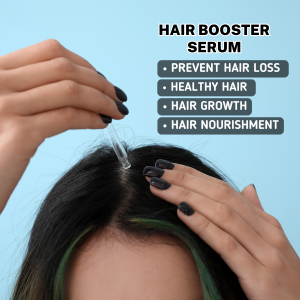Washing our hair is a routine task many of us accomplish without much thought. We hop in the shower, lather up, rinse, and that's it. However, there is a right way to wash your hair to promote healthy and vibrant locks. In this blog, we will explore the dos and don'ts of hair washing and discover the secrets to maintaining beautiful, well-cared-for tresses.
Do's
Prepping Your Hair to Wash: Setting the Stage for a Perfect Cleanse
Properly prepping your hair before a wash is crucial for maintaining a clean and healthy scalp and achieving lustrous, nourished hair. We will discuss effective hair-prepping techniques, essential products, and best practices to optimize your hair-cleansing routine. By following these tips, you can maximize the benefits of your hair care routine and achieve a thorough cleanse. So, let's dive in!
1. Understanding the Hair Cleansing Process - Before we delve into prepping your hair for a wash, it's essential to understand the hair cleansing process. Shampooing helps remove dirt, excess oil, and product build-up, while conditioning restores moisture and nourishment. To ensure these steps are practical, proper hair prepping is essential.
2. Detoxify Your Hair: Pre-wash Hair Care Tips - Optimize your hair cleansing routine; it's essential to detoxify your hair. This can be achieved through these pre-wash care tips:
- Brushing: Gently brush your hair before washing to remove tangles or knots. Gentle brushing reduces the risk of breakage and helps distribute natural oils from the scalp to the ends of your hair.
- Scalp Massage: A relaxing scalp massage promotes blood circulation and helps loosen any dirt or product residue from the scalp. Massage your scalp with your fingertips in circular motions a few minutes before washing.
- Pre-Shampoo Treatment: Consider incorporating a pre-shampoo treatment into your routine. Apply a hair mask or oil treatment to your dry hair before washing. It helps nourish and strengthen the hair, making it more damage-resistant.
3. Choose the Right Products: Essential Products for a Thorough Cleanse - Using the right products is crucial for achieving a perfect cleanse. Here are some essential products to consider:
- Clarifying Shampoo: Incorporating a clarifying shampoo into your routine once a month can help remove stubborn product build-up and pollutants. This deep-cleansing shampoo restores the natural balance of your scalp.
- Sulfate-Free Shampoo: Opt for sulfate-free shampoos that are gentle on the hair and scalp. Sulfates can strip away natural oils, leaving your hair dry and damaged.
- Conditioner: Choose a conditioner that suits your hair type and concerns. Conditioners provide hydration, detangle hair, and create a protective barrier against heat-styling tools and environmental factors.
- Scalp Scrub: Consider using a scalp scrub once a week to exfoliate your scalp and remove dead skin cells, product build-up, and excess oil. It promotes a clean and healthy scalp.
4. Steps to a Perfect Hair Cleanse: Optimizing Your Routine - Now that you understand the importance of prepping your hair and have the right products follow these steps for a perfect hair cleanse:
- Wet Your Hair: Experts recommend using lukewarm water for washing hair. Start by thoroughly wetting your hair with lukewarm water. This temperature is gentle on the scalp and hair, helps to open the hair cuticles, and allows for effective product penetration. Starting with lukewarm water and gradually reducing the temperature during the rinse can help seal the cuticles and enhance shine.
- Shampoo: Apply a small amount of shampoo to your palms and lather it. Massage it into your scalp using gentle circular motions. When shampooing, take the time to massage your scalp using your fingertips. Scalp massage stimulates blood flow to the hair follicles, promoting healthy growth. It helps to remove dirt and excess oil from the scalp. Be gentle while massaging, as aggressive scrubbing can lead to breakage.
- Condition: Applying conditioner is crucial for maintaining soft and manageable hair. However, it's essential to use it correctly. Start by applying conditioner primarily to the lengths and ends of your hair, avoiding the roots, as these areas tend to be drier and more prone to damage. Leave it on for a few minutes to allow it to penetrate the hair shaft before rinsing thoroughly.
- Rinse: After washing and conditioning your hair, consider rinsing it with cold water. The cold water helps close the cuticles, seals moisture and adds shine to the hair. It also helps to reduce frizz and increase manageability.
- Hair Drying: Gently pat your hair with a microfiber towel or an old cotton cloth to remove excess water. Avoid rubbing, as this can cause frizz and breakage. Another option is to allow your hair to air dry or use a blow dryer on the lowest heat setting to finish drying.
- Styling Products: Apply any leave-in conditioners, serums, or styling products to damp hair to protect and nourish it before drying or styling.
Prepping your hair before each wash can optimize your hair cleansing routine and achieve a clean scalp and lustrous hair. Incorporate these tips, choose the right products, and follow the steps to create a perfect cleanse. Remember, a healthy scalp and nourished hair pave the way for stunning locks!
Don'ts
The Effects of Using Hot Water for Washing Hair: Understanding the Impact on Your Locks
A warm and relaxing shower is a standard part of our daily routines. However, the water temperature we use to wash our hair can significantly impact its health and appearance. Let's delve into the effects of using hot water for washing hair, shedding light on its potential consequences regarding expert opinions.
1. Stripping Natural Oils: Hot water strips the natural oils produced by the scalp, leaving the hair dry and brittle. These oils, known as sebum, help moisturize and protect the strands. Excessive heat can disrupt the sebum balance, leading to dull and lacklustre hair.
2. Scalp Irritation: High water temperatures can cause irritation and dryness of the scalp. It can result in flakiness, itchiness, and sometimes dandruff. The heat from the water can disrupt the scalp's pH balance, leading to discomfort and potential scalp issues.
3. Weakened Hair Structure: Hot water can weaken the hair's protein and cuticle layers. It can make the strands more prone to damage, breakage, and split ends. Over time, using hot water frequently can result in weakened hair that lacks vitality and strength.
Downsides of Overwashing
Having clean and fresh hair is vital to many of us, but did you know that overwashing can harm the health and appearance of our locks? In this article, we will explore the adverse effects of overwashing on hair and provide tips on maintaining healthy and lustrous strands concerning expert opinions.
1. Stripping Natural Oils: Our scalp produces natural oils called sebum, which are essential for keeping our hair moisturized and nourished. However, overwashing can strip away these oils, leading to dry and brittle locks. Dermatologists say daily hair washing can disrupt the natural oil balance and worsen hair conditions like frizz, dandruff, and scalp irritation.
2. Increased Oil Production: Paradoxically, overwashing can trigger our scalp to produce more oil as a defence mechanism against constant stripping. It results in an oily scalp and greasy hair, creating a cycle where you must wash more frequently, further exacerbating the issue.
3. Fading Hair Color: If you colour your hair, frequent washing can cause the colour to fade faster. The chemicals and detergents in shampoo can strip away the colour molecules from the hair shaft, leading to a less vibrant and faded appearance.
Maintaining healthy and lustrous hair doesn't mean washing it obsessively. Overwashing can lead to several detrimental effects on your hair's health and appearance. By finding the right balance, using gentle products, and adopting healthy hair habits, you can achieve beautiful locks that are strong, vibrant, and full of life. If you have dry hair, washing every 2-3 days may be sufficient. You may need to wash more often if you have an oily scalp. It is crucial to Know your hair and adjust your washing routine to maintain a healthy balance.
Use too much shampoo.
A common mistake is using an excessive amount of shampoo. Remember, a little goes a long way. The amount of shampoo you need depends on the length and thickness of your hair. Start with a small amount, about the size of a quarter, and add more if necessary. Applying too much shampoo can leave residue and make your hair feel heavy or greasy.
You'll achieve healthy, beautiful hair by following these dos and don'ts. Everyone's hair is unique, so don't be afraid to experiment and find the best routine for you. Adopting a proper technique and products, you can enjoy luscious locks that will be the envy of everyone you meet!
References:
- Bustle: "How Hot Water Can Damage Your Hair & Why You'll Want To Cool Things Down"
- MedicalNewsToday: "Cold showers vs hot showers: Benefits and differences."
- StyleCraze: "6 Reasons Why You Should Wash Your Hair With Cool Water"
- MedicalNewsToday: "How often should you wash your hair?"
- WebMD: "Is washing your hair too much possible?"
- Healthline: "How often should you wash your hair?"





